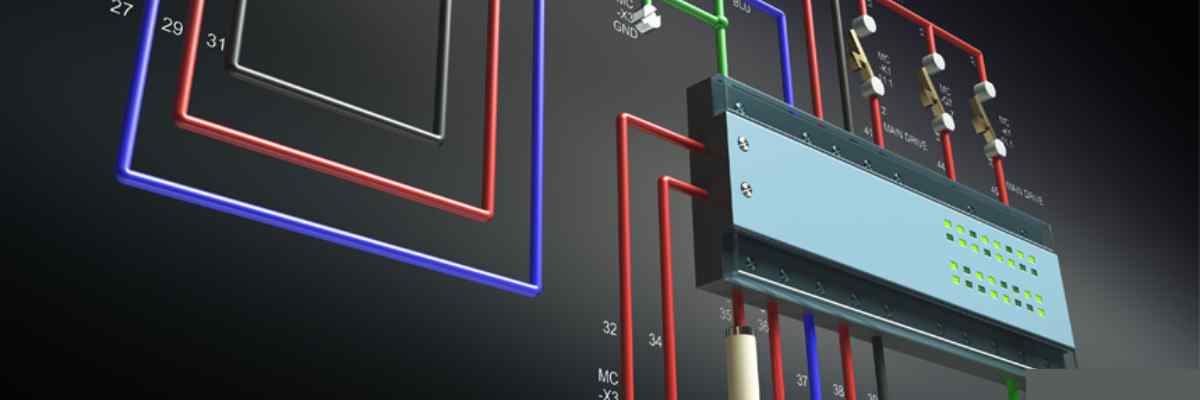What are the Job-oriented courses for EEE students in 2023

In the ever-changing technological world, the field of Electrical and Electronics Engineering (EEE) is at the centre of innovation. EEE plays an important part in determining the modern world, with applications ranging from power systems and renewable energy to robots and artificial intelligence.
From using the power of renewable energy to exploring the realms of artificial intelligence, automation, and beyond, we will provide a thorough roadmap for EEE students who want to not only secure employment but also succeed in a fast-changing professional environment.
Job-oriented courses for EEE students in 2023
In this article, we will have a look at the most interesting and relevant job-oriented courses for EEE students in 2023.
1. Electrical Safety Course
Electrical Safety Course is the most important job-oriented courses for electrical engineers. An Electrical Safety Course is designed to educate students about the possible dangers of working around electrical systems and equipment, as well as to provide them with the information and skills needed to ensure their own and other's safety. It is an important course to survive in the Electrical and Electronics field. This course aims to give students a thorough understanding of electrical safety procedures, rules, and techniques, with the goal of creating a safety-conscious mindset in students who will work with electricity in a variety of industries.
2. Programmable Logic Controller (PLC)
The Programmable Logic Controller is the best EEE course for students who pursuing or pursued electrical engineering. The Programmable Logic Controller (PLC) Course will provide students with the knowledge and skills needed to understand, program, and use PLCs, which are adaptable industrial automation devices used to control a wide range of processes and machines in plenty of industries.
This course was created to fit in with the EEE degree curriculum, ensuring that students are well-equipped to work with PLCs. In manufacturing, industrial, and commercial industries, PLCs play an important role in automating complicated activities, enhancing efficiency, and ensuring consistent and reliable operation.
3. Electrical CAD Course

An Electrical Computer-Aided Design (CAD) Course was created to provide students with the skills and information necessary to build, modify, and analyse electrical designs and drawings using specialized CAD software. This course is developed specifically for EEE students who are studying the complex nature of electrical systems, circuits, and components as part of their academic curriculum. Electrical CAD software increases the speed and accuracy of designing, documenting, and communicating electrical plans and designs.
4. Power Electronics
Power electronics is a field of electrical and electronics engineering that deals with electrical energy conversion, control, and management. It plays an important role in modern life because it enables efficient and reliable energy conversion, distribution, and usage in a variety of applications/industries. Power electronics is a subfield of electrical engineering linked with the efficient transfer of electrical energy from one type to another. Power electronics is essential for EEE students to understand this field serves as the foundation for many innovative technologies that shape the world today.
5. Artificial Intelligence and Machine Learning for EEE
Artificial Intelligence (AI) and Machine Learning (ML) have emerged as game-changing technologies that are changing industries and human experiences. Aside from their use in subjects such as data science and computer science, the application of artificial intelligence and machine learning in electrical engineering is altering the way people interact with technology and systems. This change has created an urgent need for EEE experts with AI and ML skills, and job-oriented courses in this subject are paving the way for an entirely new kind of engineer.
6. Automation and Robotics
Automation and robotics are revolutionary technologies that have transformed industries, altered the way we work, and improved our everyday lives. These sectors make use of advanced technology to perform tasks with minimal human involvement, resulting in greater efficiency, precision, and consistency. Understanding automation and robotics is becoming more important for Electrical and Electronic Engineering students, as these technologies are essential to a wide range of businesses and applications.
7. Internet of Things

The Internet of Things (IoT) is a transformative technology concept that has transformed how we interact with devices, systems, and the world around us. It is a network of interconnected gadgets, devices, and sensors that are equipped with sensors, software, and connection to gather, exchange, and analyse data. The Internet of Things (IoT) is a dynamic and disruptive technological platform that is highly relevant to Electrical and Electronic Engineering students. Understanding and using IoT concepts as an EEE student is essential for keeping at the forefront of technological advances and contributing to many industries.
8. Programming Languages
Programming languages are important tools for Electrical and Electronic Engineering students and professionals. Programming Languages allow them to design, develop, and implement a variety of applications, systems, and devices. In this Digital World, all machines are made of programming and all are automatic. It is essential to know programming languages, to operate the programming logic controller (PLC). Different programming languages provide different characteristics and capabilities that address various parts of EEE, including from embedded systems to data analysis.
Career Opportunities for EEE Students
After Completing these Job-Oriented Courses for EEE students. There are several career opportunities for EEE Students. The following jobs are available in the field of Electrical and Electronics Engineering:
• Power System Engineer
• Electronics Engineer
• Control Engineer
• Electrical Engineer
• Renewable Energy Engineer
• Robotics Engineer
• Automation and Control Engineer
• System Developer
• Manufacturing System Engineer
• Systems Analyst
To Conclude
The EEE field offers a wide range of job-oriented courses for electrical engineers. Jobs after EEE like Electronics Engineering, Electrical Engineer, Renewable Energy Engineer, and Power System Engineer have very potential scope in the present and the future. These Job-oriented courses are not just a way to get work; they are also a way to get ahead in the technology revolution. The decisions taken by EEE students today will have a long-term impact on their careers and the world around them. By enrolling in job-related courses in 2023 and later, EEE students have begun on journeys of innovation, progress, and personal improvement.
FAQ's
What are the skills required for EEE Students to get a job?
The Electrical and Electronic Engineering students should have the skillset of basic circuit knowledge, technical skills, problem-solving skills and, innovative thinking skills.
What are the Career Opportunities for EEE Students?
Electrical Engineering Students have wide opportunity of career opportunities. They could pursue jobs like Power System Engineer, Electronics Engineer, Renewable Energy Engineer, etc.
What are the job-oriented courses after electrical engineering?
After completing Electrical Engineering, there are several job-oriented courses like Electrical CAD, Programmable Logic Controller, and Electric Safety Courses. You could choose several job-oriented courses after electrical engineering.
Does EEE require coding?
Yes. But not in all cases, programming skills might be needed for some electrical engineers who are into machine programming-related jobs.


